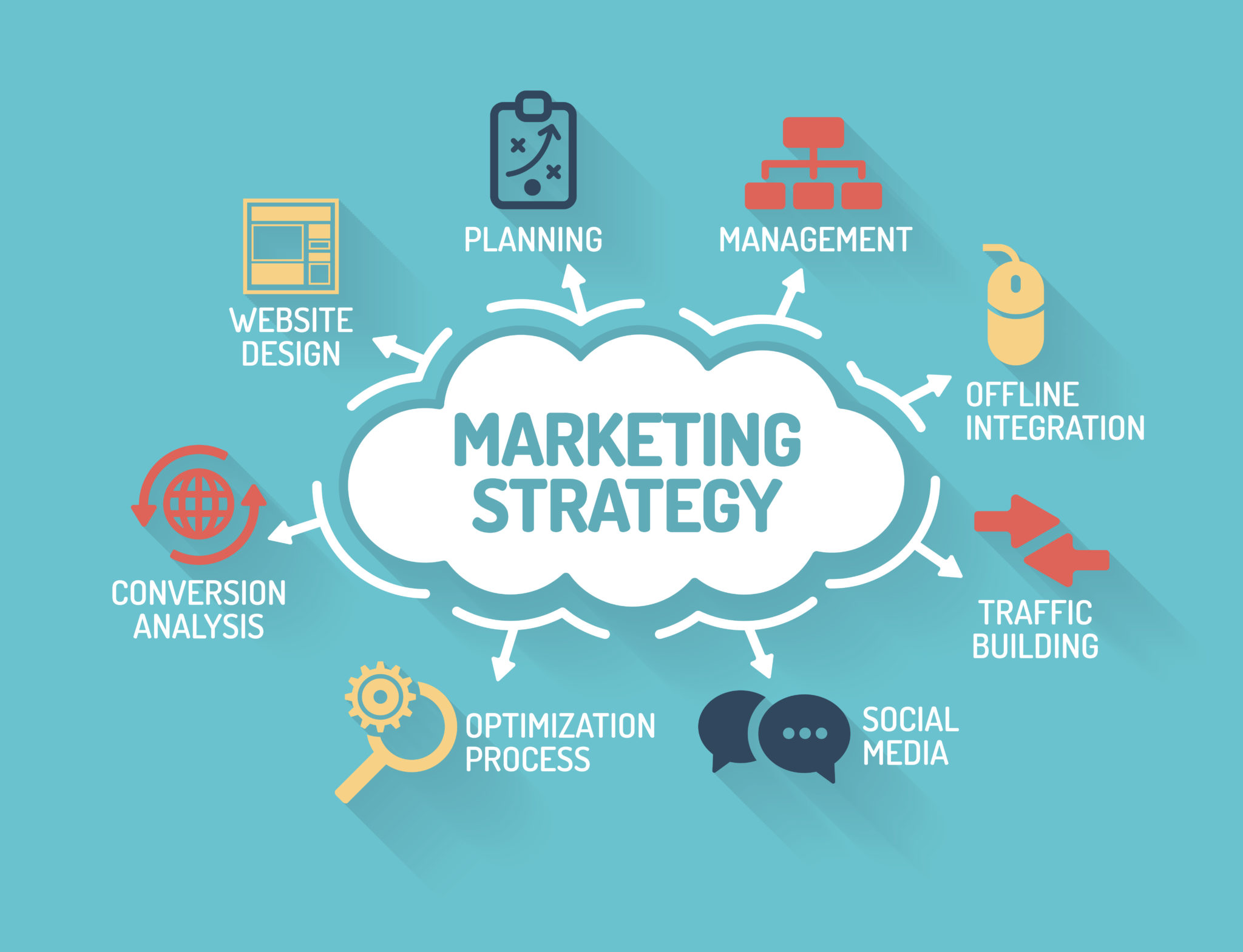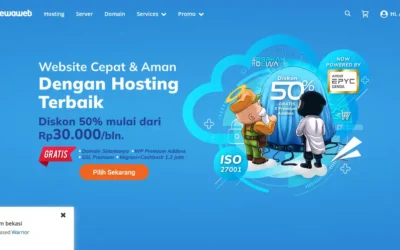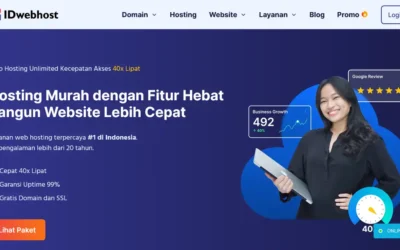AI in Digital Marketing — The Complete Guide
Artificial Intelligence (AI) has revolutionized various industries, and digital marketing is no exception. With the ability to analyze vast amounts of data and make intelligent predictions, AI has become an invaluable tool for digital marketers. In this guide, we will explore what AI is in the context of digital marketing, how it is used, its pros and cons, examples of AI in digital marketing, and how to harness its power effectively.

What is AI in Digital Marketing?
AI refers to the simulation of human intelligence in machines that are programmed to think and learn like humans. In the context of digital marketing, AI involves the use of algorithms and machine learning techniques to analyze data, make predictions, and automate tasks. It enables marketers to gain insights, optimize campaigns, and deliver personalized experiences to their target audience.
How Do Digital Marketers Use AI?
Digital marketers use AI in various ways to enhance their marketing efforts. Here are some common applications:
1. Data Analysis and Insights
AI algorithms can analyze large volumes of data from various sources, such as customer demographics, browsing behavior, and social media interactions. This analysis helps marketers understand their target audience better and identify patterns and trends that can inform their marketing strategies.
2. Personalization
AI enables marketers to deliver personalized experiences to their customers. By analyzing customer data, AI algorithms can recommend products, tailor content, and create personalized email campaigns. This level of personalization enhances customer engagement and increases the likelihood of conversions.
3. Chatbots and Virtual Assistants
AI-powered chatbots and virtual assistants can interact with customers in real-time, providing instant support and assistance. These AI-driven conversational agents can answer customer queries, guide them through the purchase process, and offer personalized recommendations. This improves customer satisfaction and reduces the workload on customer support teams.
4. Content Creation and Optimization
AI can assist in content creation and optimization. Natural Language Processing (NLP) algorithms can analyze content and provide suggestions for improving readability, SEO optimization, and overall effectiveness. AI can also generate content, such as product descriptions or social media posts, based on predefined templates and data inputs.
5. Predictive Analytics
AI algorithms can predict customer behavior and preferences based on historical data. This enables marketers to anticipate customer needs, optimize marketing campaigns, and make data-driven decisions. Predictive analytics can also help identify potential churn risks and recommend retention strategies.
AI in Digital Marketing: Pros and Cons

Pros of AI in Digital Marketing
– Enhanced Efficiency: AI automates repetitive tasks, allowing marketers to focus on strategic activities.
– Improved Personalization: AI enables personalized experiences, leading to higher customer engagement and conversions.
– Data-Driven Insights: AI analyzes vast amounts of data, providing valuable insights for informed decision-making.
– Real-Time Customer Support: AI-powered chatbots offer instant support, improving customer satisfaction.
– Cost Savings: AI automation reduces operational costs and improves marketing ROI.
Cons of AI in Digital Marketing
– Initial Investment: Implementing AI technologies can require significant upfront costs.
– Data Privacy Concerns: The use of AI involves collecting and analyzing customer data, raising privacy concerns.
– Lack of Human Touch: AI-powered interactions may lack the personal touch of human interactions.
– Technical Challenges: Implementing AI requires technical expertise and ongoing maintenance.
– Ethical Considerations: AI algorithms need to be designed and monitored to ensure ethical use and prevent biases.
Examples of AI in Digital Marketing
Here are some examples of how AI is used in digital marketing:
1. Recommendation Engines
Online platforms, such as e-commerce websites and streaming services, use AI-powered recommendation engines to suggest products, movies, or songs based on user preferences and behavior. These recommendations are tailored to each individual user, increasing the chances of conversions and customer satisfaction.
2. Programmatic Advertising
AI algorithms are used in programmatic advertising to optimize ad placements and targeting. By analyzing user data and real-time bidding information, AI can identify the most relevant ad placements and deliver personalized ads to the right audience at the right time. This improves ad performance and increases ROI.
3. Social Media Listening and Sentiment Analysis
AI tools can monitor social media platforms and analyze user sentiments towards brands or products. This helps marketers understand customer perceptions, identify potential issues, and respond in real-time. Sentiment analysis also provides insights for reputation management and brand positioning.
4. Email Marketing Automation
AI-powered email marketing platforms can automate the creation and delivery of personalized email campaigns. These platforms use AI algorithms to segment audiences, determine the best time to send emails, and customize content based on user preferences. This improves email open rates, click-through rates, and overall campaign performance.
How to Use AI in Digital Marketing: Harnessing the Power
To effectively use AI in digital marketing, consider the following steps:

1. Define Your Goals
Identify your marketing objectives and determine how AI can help you achieve them. Whether it’s improving personalization, optimizing ad campaigns, or enhancing customer support, having clear goals will guide your AI implementation strategy.
2. Collect and Analyze Data
Ensure you have access to relevant data sources and implement proper data collection mechanisms. Clean and organize your data to make it suitable for AI analysis. Use AI tools and algorithms to analyze the data and extract valuable insights.
3. Choose the Right AI Tools and Platforms
Research and select AI tools and platforms that align with your goals and requirements. Consider factors such as ease of use, scalability, integration capabilities, and customer support. Test different tools and platforms to find the ones that work best for your specific needs.
4. Implement and Test AI Solutions
Integrate AI solutions into your existing marketing processes and systems. Start with small-scale implementations and gradually expand as you gain confidence and experience. Continuously monitor and evaluate the performance of your AI solutions to ensure they are delivering the expected results.
5. Train and Upskill Your Team
Provide training and resources to your marketing team to enable them to effectively work with AI technologies. Foster a culture of continuous learning and encourage your team to stay updated with the latest advancements in AI and digital marketing.
6. Monitor Ethical Considerations
Ensure that your AI algorithms and processes are designed and monitored to prevent biases and ensure ethical use of customer data. Regularly review and update your privacy policies and data protection practices to comply with relevant regulations.
7. Stay Updated with AI Trends
AI is a rapidly evolving field, and new advancements are being made regularly. Stay updated with the latest AI trends and innovations in digital marketing to identify new opportunities and stay ahead of the competition.
Conclusion
AI has transformed the way digital marketers operate, enabling them to analyze data, personalize experiences, and automate tasks. By understanding what AI is, how it is used, and its pros and cons, marketers can harness its power effectively. By implementing AI in digital marketing strategies, businesses can gain a competitive edge and deliver exceptional customer experiences in today’s data-driven world.




